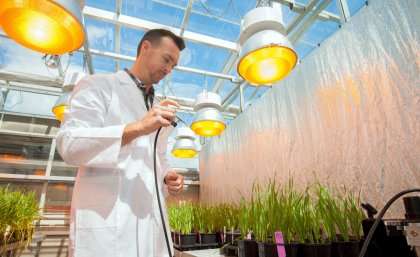Organic is not always the best choice for you or the planet

Eating organically grown food might make you feel good inside, but a University of Queensland researcher says organic agriculture is not necessarily sustainable and— contrary to popular belief—often relies on chemical sprays.
Professor Ian Godwin, from the UQ School of Agriculture and Food Sciences, argues that genetically modified organisms (GMOs) are perfectly compatible with organic agriculture, and can actually improve production and food safety.
"Genetically modified products fit in perfectly with organics," Professor Godwin said.
"GMOs allow the creation of disease-and pest-resistant plants which require less fertiliser for the same yield and product quality."
He said GMO food required less space to grow, which meant much higher yields per hectare.
Professor Godwin said there were misconceptions about organic production as well as about GMO foods.
"People think organic crops don't get sprayed, but in commercial farming that's not possible.
"You can't use fungicides in organic production, so people use various different combination of chemicals, but mostly copper.
"Farmers who've been doing this with potatoes over the years are now getting higher levels of copper in the soil then the World Health Organisation recommends.
"It doesn't matter if it's organic or not, if you're growing potatoes, you'll be spraying them every few weeks."
Provided by University of Queensland

















